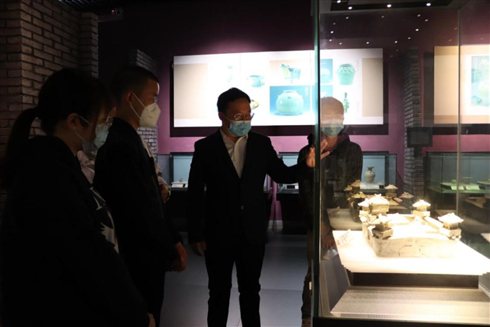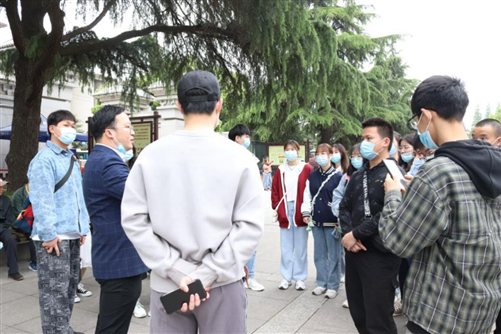Cultural relics accumulate the cultural spirit of an era and connect the bright sky river leading to history. In order to enhance college students' understanding and interest in Jingchu culture and cultivate their cultural quality and patriotism, teachers from the Department of Ideological and Political Education of the School of Engineering and Technology of Yangtze University organized students to visit and study in Jingzhou Museum and had a practical course of ideological and political education in the museum.

Jingzhou has a long history. As early as five or six thousand years ago, human beings created the Daxi culture here. It is the birthplace of Chu culture and one of the first 24 national historical and cultural cities announced by The State Council. Jingzhou Museum is one of the first national first-class museums, and is rated as the first of the "Top ten museums" at the prefectural level in China. It is the best place for college students to understand Chu culture, and a good practice base for ideological and political courses to carry out historical materialism education and patriotism education.

Lead a team of teachers to show the students around the exhibition halls of the museum and explain the historical background of the museum's main cultural relics. In the exhibition hall of primitive culture, the teacher introduced the Daxi culture and its representative pottery to the students, and explained the social system and lifestyle of primitive civilization; In the Bronze Culture exhibition hall, the students learned about the technological characteristics, practical uses and historical value of bronzes such as bronze tripod, bronze sword and chime bell through the teacher's explanation; In the lacquerware culture exhibition hall, the teacher gave the students a detailed introduction to the representative cultural relics of Chu culture, tiger bird and drum, and interpreted the consciousness of advocating phoenix and yearning for peace contained in the ancient Chu people, and the spirit of conquering beasts and trekking.

After the visit, an on-site learning exchange meeting was held in the museum square. Students said that the trip was fruitful. The Department of Ideological and Political Education of the School of Engineering and Technology of Yangtze University actively carried out practical teaching reform, carefully designed various ideological and political practical teaching activities, and focused on guiding students to enhance practical skills, improve social responsibility, and shape correct values through practical activities.